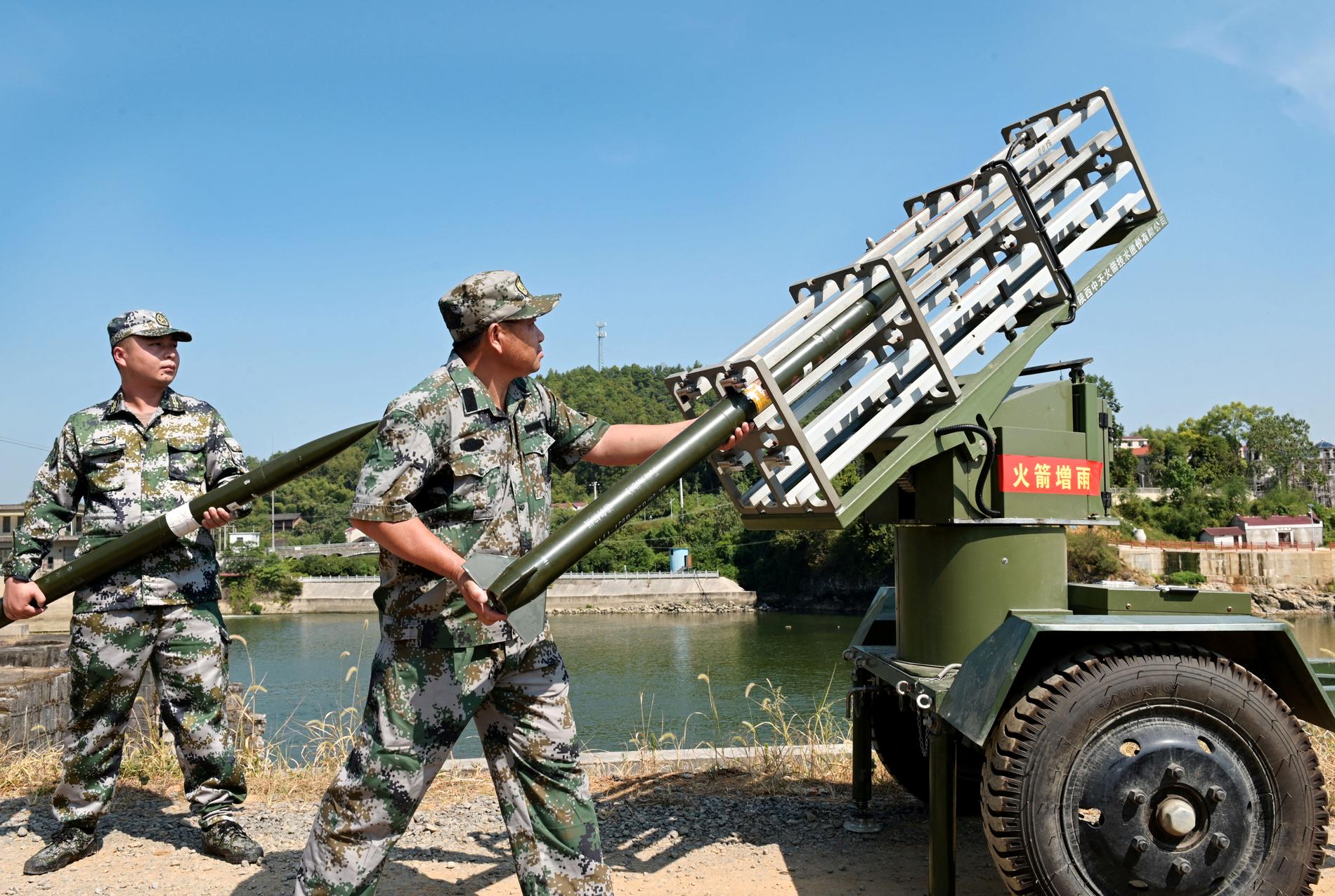By throwing chemicals into the clouds, China will fill Asia’s longest river. But the lack of cloud cover means the project has to be suspended in many places.
Updated only now
–
The Yangtze River is the longest in China and stretches from the mountains of Tibet in the west to the East China Sea near Shanghai in the east.
Now the Yangtze is drying up. Chinese authorities believe this threatens water security in rural areas, livestock and the possibility of farming.
– In the past in August, sweet potato leaves grew very thick. They are expected to bloom from August to September, local farmer Chen Xiaohua (68) told Reuters.
Chen Xiaohua is a farmer from western China. In the photo gallery, show his dead crops:
1 / 3
 –
– –
– –
––
–
Chen lives in Fuyuan Village in Chongqing Province. Temperatures of up to 45 degrees Celsius were measured on Friday.
– The temperature is so high every day. We have to work in the morning. In the afternoon we stay inside. We are afraid to go out, continue.
China has deployed its military in the fight against drought: it is launching chemicals to bring more rain to its troubled crops and to fill the Yangtze.
Forcing the clouds to rain
The process is called “cloud seeding” and involves throwing or spreading chemicals such as dry ice or silver iodide into the clouds. You can use planes, cannons or even missiles to achieve this, explains Yr.no.
In this way man influences the formation of rain in the clouds. Salts cause chemicals to form, grow together, and eventually fall off when they get large enough.
China has been practicing cloud seeding since the 1940s and is the country in the world that practices cloud seeding the most.
 –
–During the 2008 Summer Olympics in Beijing, they prepared themselves 11,000 rockets to “force” the clouds to rain before they arrived in the Olympic city. They wanted good weather.
But during the drought that has nearly emptied parts of the Yangtze River, China is struggling to do what it usually does – cloud cover is breaking down in many places. reports CNN. So there are no clouds in which to fire the rockets.
 –
–Historically dry
Like it drought in Europe and in the United States, Chinese drought also joins a historic heatwave:
– This time the heatwave has a longer duration, a wider reach and stronger in its extremes, the Chinese National Climate Center says in a statement according to CNN.
 –
–The heat wave lasted nearly 70 days, making it the longest China has ever recorded. The measurements began in 1963.
– All signs taken into consideration, the heat wave in China will continue and the intensity will increase, continues the Climate Center.
Significant consequences
Lack of electricity, little water, dead crops and rising temperatures. Across much of the country, the Chinese now have to take precautions in extreme weather conditions.
A red alert, the highest in China, was issued for at least 138 cities in the country. The second highest orange hazard warning was issued for a total of 373 cities.
In the industrial-rich southern province of Sichuan, the 84 million inhabitants have received a stern message: all factories must close for six days to avoid the country’s energy shortage.
 –
–This means that economic experts now fear that the Chinese economy will be hit hard by the heatwave:
– An exceptionally hot and dry summer impacted power supply and led to production shutdowns in some provinces and energy-intensive sectors, US bank Goldman Sachs summarizes in an analysis of the Chinese economy.
 –
–Elsewhere in China, on the other hand, the economy is far from the biggest concern: in Hubei province, authorities estimate that more than 150,000 people have difficulties with accessing clean water.
A video from Quanzhou, on the Chinese coast of the Taiwan Strait, also shows a bridge collapsed last weekend due to extreme heat.
–


